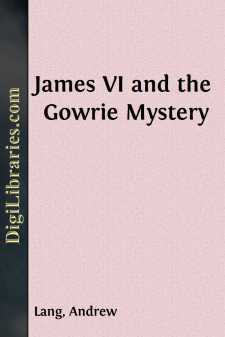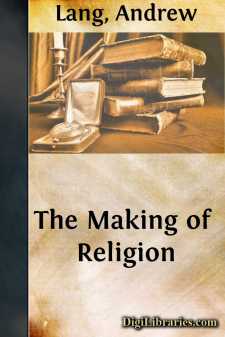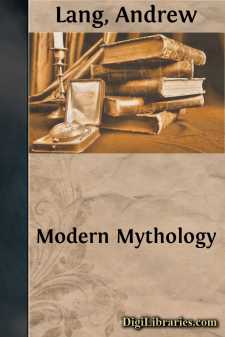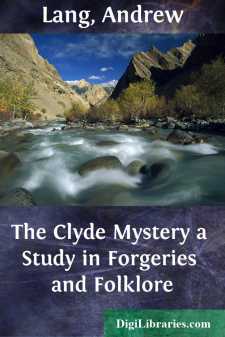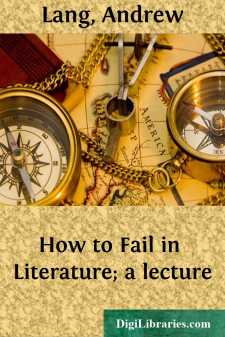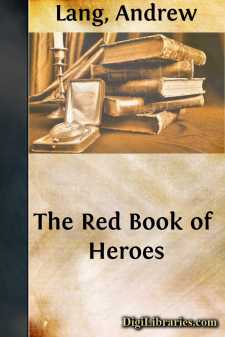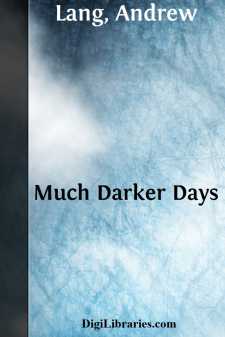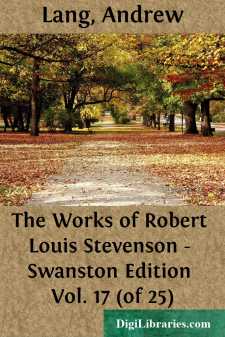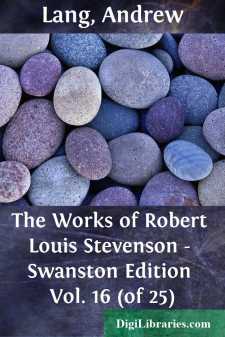Categories
- Antiques & Collectibles 13
- Architecture 36
- Art 48
- Bibles 22
- Biography & Autobiography 813
- Body, Mind & Spirit 142
- Business & Economics 28
- Children's Books 17
- Children's Fiction 14
- Computers 4
- Cooking 94
- Crafts & Hobbies 4
- Drama 346
- Education 46
- Family & Relationships 57
- Fiction 11829
- Games 19
- Gardening 17
- Health & Fitness 34
- History 1377
- House & Home 1
- Humor 147
- Juvenile Fiction 1873
- Juvenile Nonfiction 202
- Language Arts & Disciplines 88
- Law 16
- Literary Collections 686
- Literary Criticism 179
- Mathematics 13
- Medical 41
- Music 40
- Nature 179
- Non-Classifiable 1768
- Performing Arts 7
- Periodicals 1453
- Philosophy 64
- Photography 2
- Poetry 896
- Political Science 203
- Psychology 42
- Reference 154
- Religion 513
- Science 126
- Self-Help 84
- Social Science 81
- Sports & Recreation 34
- Study Aids 3
- Technology & Engineering 59
- Transportation 23
- Travel 463
- True Crime 29
Sort by:
by:
Andrew Lang
INTRODUCTION An old Scottish lady, four generations ago, used to say, ‘It is a great comfort to think that, at the Day of Judgment, we shall know the whole truth about the Gowrie Conspiracy at last.’ Since the author, as a child, read ‘The Tales of a Grandfather,’ and shared King Jamie’s disappointment when there was no pot of gold, but an armed man, in the turret, he had supposed that we...
more...
by:
Andrew Lang
LOST LEADERS. SCOTCH RIVERS. September is the season of the second and lovelier youth of the river-scenery of Scotland. Spring comes but slowly up that way; it is June before the woods have quite clothed themselves. In April the angler or the sketcher is chilled by the east wind, whirling showers of hail, and even when the riverbanks are sweet with primroses, the bluff tops of the border hills are...
more...
by:
Andrew Lang
I INTRODUCTORY CHAPTER The modern Science of the History of Religion has attained conclusions which already possess an air of being firmly established. These conclusions may be briefly stated thus: Man derived the conception of 'spirit' or 'soul' from his reflections on the phenomena of sleep, dreams, death, shadow, and from the experiences of trance and hallucination. Worshipping...
more...
by:
Andrew Lang
INTRODUCTION It may well be doubted whether works of controversy serve any useful purpose. ‘On an opponent,’ as Mr. Matthew Arnold said, ‘one never does make any impression,’ though one may hope that controversy sometimes illuminates a topic in the eyes of impartial readers. The pages which follow cannot but seem wandering and desultory, for they are a reply to a book, Mr. Max Müller’s...
more...
by:
Andrew Lang
PREFACE The author would scarcely have penned this little specimen of what Scott called “antiquarian old womanries,” but for the interest which he takes in the universally diffused archaic patterns on rocks and stones, which offer a singular proof of the identity of the working of the human mind. Anthropology and folklore are the natural companions and aids of prehistoric and proto-historic...
more...
by:
Andrew Lang
HOW TO FAIL IN LITERATURE What should be a man’s or a woman’s reason for taking literature as a vocation, what sort of success ought they to desire, what sort of ambition should possess them? These are natural questions, now that so many readers exist in the world, all asking for something new, now that so many writers are making their pens “in running to devour the way” over so many acres of...
more...
by:
Andrew Lang
'Life is not all beer and skittles,' said a reflective sportsman, and all books are not fairy tales. In an imperfect state of existence, 'the peety of it is that we cannot have all things as we would like them.' Undeniably we would like all books to be fairy tales or novels, and at present most of them are. But there is another side to things, and we must face it. '"Life is...
more...
by:
Andrew Lang
CHAPTER I.—The Curse (Registered). WHEN this story of my life, or of such parts of it as are not deemed wholly unfit for publication, is read (and, no doubt, a public which devoured 'Scrawled Black' will stand almost anything), it will be found that I have sometimes acted without prim cautiousness—that I have, in fact, wallowed in crime. Stillicide and Mayhem I (rare old crimes!) are...
more...
by:
Andrew Lang
CHAPTER I THE ELEMENTS OF DISCORD: NATIVE The story I have to tell is still going on as I write; the characters are alive and active; it is a piece of contemporary history in the most exact sense. And yet, for all its actuality and the part played in it by mails and telegraphs and iron war-ships, the ideas and the manners of the native actors date back before the Roman Empire. They are Christians,...
more...
by:
Andrew Lang
THE SURNAME OF STEVENSON From the thirteenth century onwards, the name, under the various disguises of Stevinstoun, Stevensoun, Stevensonne, Stenesone, and Stewinsoune, spread across Scotland from the mouth of the Firth of Forth to the mouth of the Firth of Clyde. Four times at least it occurs as a place-name. There is a parish of Stevenston in Cunningham; a second place of the name in the Barony of...
more...


